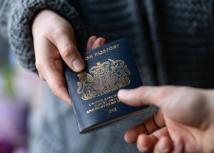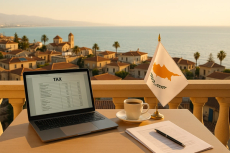Blog • Published on:October 29, 2025 | Updated on:October 29, 2025 • 14 Min
Alternative Investment Options in Residency and Citizenship by Investment Programs in 2025
Real estate has long been the cornerstone of Residency and Citizenship by Investment programs.
But in 2025, a growing number of investors are looking beyond villas and resorts, choosing funds, bonds, and business ventures that offer flexibility, returns, and fewer complexities.
These alternative investment routes are reshaping how global citizens secure second passports and residencies.
They’re faster, often more liquid, and aligned with modern wealth strategies.
At Savory & Partners, we see this as a defining change, where residency and citizenship become not only a lifestyle choice, but smarter, diversified investments.
For a wider look at global trends, explore our Residency and Citizenship 2025 Guide.
Understanding Alternative RCBI Investments
What Are Alternative Investment Options in RCBI Programs?
Alternative investments refer to qualifying routes under Citizenship by Investment or Residency by Investment frameworks that go beyond real estate.
These include:
- Government bonds and national funds, used to support public projects.
- Business investments in start-ups, ventures, or existing companies.
- Financial instruments, such as regulated funds or securities.
Unlike real estate, these options often involve no property management, no resale complexities, and faster liquidity, making them ideal for investors focused on returns rather than lifestyle relocation.
Why Are Investors Moving Beyond Real Estate?
In 2025, investors are increasingly driven by mobility, diversification, and convenience.
Real estate remains valuable, but it’s no longer the only credible path to second citizenship or residence.
The reasons are clear:
- Lower entry costs in some programs.
- Faster processing and simpler documentation.
- Predictable returns through fixed-yield government bonds.
- Reduced exposure to market volatility or resale delays.
This evolution reflects the changing investor mindset, seeking citizenship as a strategic portfolio move, not just a lifestyle decision.
What Are the Key Benefits of Diversifying Your RCBI Portfolio?
Diversifying across multiple investment types strengthens your overall global position.
It allows investors to balance risk, return, and liquidity, while aligning citizenship goals with financial strategy.
Key Advantages:
- Exposure to multiple economies and currencies.
- Easier reallocation or exit options after the holding period.
- Greater access to fund-linked residency and citizenship models in stable markets like Europe.
- Alignment with sustainable or government-backed projects.
Statistical Snapshot
- Average ROI range: 3–6% annually, depending on jurisdiction.
- Typical holding period: 3–5 years.
Government Bonds as RCBI Investment Options
Government-backed investment routes are among the safest and most straightforward ways to qualify for citizenship and residency.
They allow investors to contribute directly to a nation’s development, funding infrastructure, healthcare, and innovation, while earning potential returns or securing long-term residency rights.
How Do Government Bonds Work in RCBI Programs?
In most programs, investors purchase state-issued bonds or securities for a fixed term, typically three to five years.
These are low-risk, interest-bearing instruments, often redeemable after the holding period.
Some programs also offer non-refundable national development contributions, which fund public projects rather than generating profit.
This path appeals to risk-averse investors seeking security, simplicity, and predictable outcomes rather than property ownership.
What Are National Development Funds?
National development funds are among the most common non-real-estate options in the RCBI space.
One of the most reputable examples is the Dominica Citizenship by Investment Program, where investors contribute $200,000 to the country’s Economic Diversification Fund.
These funds directly support renewable energy, healthcare, and tourism initiatives, helping to drive sustainable growth while offering investors an accessible entry point.
It’s an efficient route for applicants who prefer a donation-based path with minimal administrative burden.
What Are Infrastructure Bonds and Securities?
Some countries have introduced recoverable or structured investment options tied to national projects, offering an alternative to donation models.
A long-standing example is the Saint Kitts and Nevis Citizenship Program, which allows non-refundable contributions to its Sustainable Island State Contribution (SISC), a centralized fund supporting sustainability and national development.
By contrast, the Saint Lucia Citizenship by Investment Program offers a unique refundable investment option, the National Action Bond (NAB).
This bond, valued at $240,000, provides investors with a secure, government-backed alternative that balances capital protection and citizenship access.
Outside the Caribbean, countries like Egypt and Türkiye also offer government bond routes, where citizenship eligibility is linked to holding national securities for a fixed period.
Comparison Snapshot
Business Investment Pathways
For investors who want their capital to generate growth rather than sit idle, business-based residency and citizenship routes offer an alluring alternative.
They combine financial participation with active engagement, giving investors a direct stake in the local economy while qualifying for second citizenship or residency.
How Can You Qualify Through Start-Up or Business Investment?
Business investment routes usually require applicants to:
- Establish or acquire a business that contributes to national development.
- Create a minimum number of jobs for locals (where applicable).
- Submit a detailed business plan outlining long-term sustainability.
- Prove clean funds and prior entrepreneurial experience through documentation.
Eligibility varies by country, but the general requirement is to show real economic participation, not just capital placement.
What Are the Main Business Investment Routes?
Three primary formats dominate the market:
- Start-up investments: Supporting new ventures in tourism, renewable energy, or technology.
- Existing business acquisition: Buying a share or full ownership in an established local company.
- Joint ventures: Partnering with local entrepreneurs or government projects for shared equity and returns.
These options attract investors looking for hands-on growth, regional access, and the ability to contribute to emerging markets.
Which Programs Allow Business-Based Residency and Citizenship?
1. Portugal – D2 Entrepreneur Visa
Under Portugal’s Entrepreneurial Residency Visa, investors can establish or co-found companies that generate employment and demonstrate economic value.
Best For: Entrepreneurs seeking EU access through company establishment or innovation-based projects.
2. United Kingdom – Innovator Founder Visa
The UK’s Innovator Founder Visa allows entrepreneurs to obtain residency by developing a business approved by an endorsing body.
The venture must demonstrate innovation, scalability, and potential for job creation.
Best For: Experienced entrepreneurs targeting access to the UK market and financial ecosystem.
3. Canada – Start-Up Visa
The Start-Up Visa program grants permanent residency to entrepreneurs who secure investment or support from a designated venture fund, angel investor, or incubator.
It’s one of the most direct business migration routes in the world, offering immediate relocation and long-term settlement potential.
Best For: Global founders seeking North American residency with investor support.
Why Choose a Business Migration Program?
Business migration routes bridge economic participation with mobility, offering investors:
- Direct business ownership and operational control.
- Access to major global markets
- A clear path from temporary residency to permanent settlement and citizenship.
- Eligibility to include family members under one application.
Financial Market Investments
For investors who prefer a more hands-off approach, financial market-linked investments are becoming a leading alternative to real estate.
These routes combine regulated fund structures, professional management, and diversified portfolios, offering a smoother, more liquid path to citizenship or residency.
Can You Invest in Funds or Financial Instruments for Citizenship?
Yes, several residency and citizenship programs now allow applicants to qualify through regulated funds instead of property.
These investments typically include venture capital, private equity, or national investment funds approved by the government.
They’re ideal for those who value transparency, low maintenance, and professional oversight, with the added benefit of potential returns during the holding period.
What Are the Most Popular Fund Options?
Europe has been the pioneer in fund-based residency routes.
The Portugal Golden Visa Program allows investors to contribute a minimum of €500,000 into qualified investment funds, many of which focus on sustainable energy, technology, or innovation.
It’s an increasingly popular alternative since real estate options have narrowed under new regulations.
Likewise, the Malta Permanent Residency Program (MPRP) combines a government contribution with fund participation, providing long-term EU residency and a route to citizenship after consistent residence.
Both models represent a modern, compliant approach, offering stability, diversification, and European access without the administrative burden of managing physical assets.
How Do Market Investments Compare to Real Estate?
Financial instruments generally provide higher liquidity and shorter exit periods than real estate holdings.
They are also more adaptable to global market conditions and allow investors to align their citizenship application with broader portfolio strategies.
These investment routes are especially favored by institutional and HNW applicants who view citizenship not only as a Plan B but as a strategic financial position.
Comparing Investment Returns
While every Citizenship or Residency by Investment program is unique, understanding return potential and risk exposure helps investors choose wisely.
Alternative routes, from bonds to business ventures, vary in structure, yield, and holding periods, but all share one key goal: combining financial growth with mobility.
What ROI Can Investors Expect?
Returns depend on the investment type and jurisdiction.
Government-backed bonds typically yield 3–5% per year, while business and fund investments can reach 6–10%, depending on market conditions and management performance.
However, the true value of these investments often lies in their combined benefit, financial return plus the lifetime advantage of citizenship or residency.
How Should You Assess Risk Levels?
Each investment type carries a different level of volatility and involvement.
This table offers a clear snapshot of risk versus return potential:
Most programs require holding the investment for 3–5 years before withdrawal or resale, ensuring both economic stability and investor commitment.
Which Markets Perform Best?
European and Caribbean programs have shown consistent stability over time.
Europe offers regulated financial markets and fund-backed structures under EU oversight, while the Caribbean continues to deliver steady government-backed confidence through long-running CBI programs.
Meanwhile, emerging destinations like São Tomé and Príncipe are drawing attention for combining regional growth potential with cost efficiency and a clear path to global mobility.
Learn more about its global access benefits in our São Tomé and Príncipe Visa-Free Countries Guide.
Due Diligence in Alternative Investments
No matter the investment type, due diligence is the foundation of every legitimate Citizenship or Residency by Investment program.
Alternative routes like funds or bonds often involve multiple financial institutions and government agencies, which makes compliance even more crucial.
For investors, understanding the legal and verification process ensures both security and peace of mind before capital is committed.
What Legal Requirements Apply?
All applicants must meet strict Know Your Customer (KYC) and Anti-Money Laundering (AML) standards.
This ensures that both the investor and the investment are transparent, lawful, and aligned with international regulations.
The typical legal review includes:
- Criminal background and identity verification.
- Source of funds documentation.
- Financial history and asset ownership checks.
- Screening against global sanctions and compliance databases.
This process is conducted by independent due diligence firms approved by each participating government, ensuring that every application is thoroughly validated.
How Is Financial Verification Conducted?
Financial verification ensures that all declared assets and funds used for the investment are legitimate, traceable, and stable.
Applicants are usually asked to provide:
- Bank statements covering at least 12 months
- Tax declarations and income certificates
- Reference letters from banks or auditors
- Proof of business ownership or shareholding where applicable
This transparency builds investor confidence and maintains the integrity of each program, protecting both the applicant and the host nation.
How Is Investment Security Ensured?
To safeguard investor funds, most programs utilize escrow accounts or government-controlled payment systems.
Funds are only released after the applicant’s approval, guaranteeing that investments are processed securely and under full state supervision.
Additionally, programs with fund or bond options (such as those in Portugal, Malta, and Dominica) require licensed intermediaries to manage capital flow, reducing the risk of mismanagement or loss.
Savory & Partners Assurance
As a government-authorized agent for all major citizenship and residency programs, Savory & Partners performs its own in-house pre-screening before submission, ensuring clients meet all eligibility, financial, and compliance requirements from the start.
This double layer of due diligence means your investment journey is both secure and fully compliant at every stage.
Investment Processing and Timelines
While every program has its own requirements, the overall process for alternative investments follows a predictable and well-regulated structure.
From initial eligibility checks to final approval, investors can expect transparency, coordination, and government oversight at every stage.
What Are the Steps to Apply?
The process is typically divided into five key phases:
1.Consultation and Eligibility Review
Conducted with a licensed agent, such as Savory & Partners, to confirm which programs and investment types you qualify for.
2.Document Preparation
Collect personal, financial, and legal documents for due diligence submission.
3.Due Diligence Screening
The government and third-party firms verify your background, source of funds, and compliance record.
4.Investment Commitment
Once pre-approved, the investor transfers funds into an approved government or escrow account.
5.Final Approval and Certificate Issuance
Citizenship or residency is granted after verification of payment and compliance.
This structured process ensures security and efficiency, whether your investment is in bonds, funds, or business participation.
What Documentation Is Required?
Most programs require a consistent documentation set, which includes:
- Valid passport(s) and identity documents.
- Police clearance certificate from all countries of residence.
- Bank statements and income verification.
- Tax filings or audited financial records.
- Professional or bank reference letters.
- Proof of address and signed application forms.
Investors using fund or bond options may also be asked for investment confirmation letters or subscription agreements from the managing entity.
How Long Does Processing Take?
Processing times vary depending on the jurisdiction and investment type, but the general timeline is:
- Caribbean CBI programs: 3–6 months.
- European fund-based routes: 6–12 months.
- Business investments: 8–14 months (due to operational setup or licensing steps).
Regardless of the path chosen, investors can expect the same three guarantees:
clarity, compliance, and credibility.
Benefits of Alternative RCBI Investments
Alternative investment routes offer more than residency or citizenship eligibility; they bring financial and strategic advantages that traditional property-based paths can’t always match.
From predictable returns to portfolio diversification, these options cater to investors who view citizenship as part of a broader wealth strategy.
What Are the Financial Advantages?
Unlike real estate, which can take time to sell or manage, fund and bond-based investments are typically more liquid and stable.
They also minimize external costs such as maintenance, insurance, or local property taxes.
Key Financial Advantages:
- Predictable annual returns from bonds or fund participation
- No management or maintenance obligations
- Lower transaction and exit costs
- Access to government-guaranteed or regulated instruments
These benefits make alternative investments particularly attractive to investors who value efficiency, security, and transparency in their capital allocation.
How Do They Improve Portfolio Diversification?
Alternative RCBI routes allow investors to spread their exposure across markets and sectors instead of tying capital to a single property.
For example, a client may hold European fund units, Caribbean government bonds, and business equity in Africa, all while securing multiple citizenship or residency rights.
This multi-regional strategy creates:
- Greater economic resilience
- Protection against property market volatility
- Access to different currencies and financial environments
- Opportunities to align with ESG and sustainability-focused investments
What Are the Exit Strategies?
Most alternative investment options include clearly defined exit timelines, generally three to five years.
After this period, investors can either:
- Redeem their bonds or fund units, recovering principal or proceeds.
- Sell their business shareholding, subject to local rules.
- Or, if donation-based, complete the process without further obligation.
Because many of these investments are held under government-approved structures, investors retain a high level of assurance that exit procedures will be honored promptly and securely.
Comparison Snapshot
Choosing the Right Investment Option
Selecting the best route to citizenship or residency depends on your financial goals, risk tolerance, and long-term priorities.
While every program offers its own benefits, aligning the investment type with your personal strategy is key to maximizing both returns and global access.
How to Align with Personal Goals and Risk Appetite
Each investor’s situation is different, some seek low-risk government options, while others pursue active, high-growth opportunities.
Below is a quick framework to help evaluate which alternative investment fits best:
Your decision should balance mobility benefits with portfolio performance, ensuring the citizenship investment complements your wider financial plan rather than competing with it.
To explore which alternative investment suits your goals, contact Savory & Partners for a personalized consultation.
FAQs on Alternative Investments in RCBI
Which countries offer fund or bond-based residency and citizenship routes?
Several programs now include non-real-estate investment options.
In the Caribbean, for instance, Dominica and Saint Kitts and Nevis accept contributions to national funds, while in Europe, Portugal and Malta allow residency through regulated financial funds.
Are these options safer than real estate?
Yes. Fund and bond investments are typically government-backed or professionally managed, offering more security and fewer external risks than property ownership. They also remove issues like property management, depreciation, or resale complications.
Can investors earn returns during the holding period?
Yes. In most fund and bond routes, investors receive annual yields ranging from 3% to 6%, depending on the structure. Some business routes may also generate active returns through profit sharing.
Do alternative investment programs include family members?
Yes. All major Citizenship by Investment and Residency by Investment programs allow applicants to include their spouse, dependent children, and sometimes parents under the same application.
What happens when the holding period ends?
Once the mandatory holding period (typically three to five years) is complete, investors can redeem, sell, or withdraw their funds, depending on the program. If the investment was donation-based, no further financial obligations remain after citizenship is granted.
References
Government of the Commonwealth of Dominica. (n.d.). Citizenship by Investment Unit – Official Portal. Retrieved from https://cbiu.gov.dm
Government of Saint Kitts and Nevis. (n.d.). Citizenship by Investment Unit – Sustainable Island State Contribution. Retrieved from https://www.ciu.gov.kn
Government of Malta. (n.d.). Residency Malta Agency – Malta Permanent Residency Programme (MPRP). Retrieved from https://residencymalta.gov.mt
Portuguese Government. (n.d.). AIMA – Agency for Integration, Migration and Asylum: Golden Visa Investment Fund Rules. Retrieved from https://aima.gov.pt
Government of São Tomé and Príncipe. (n.d.). National Investment and Development Agency – Citizenship by Investment Framework. Retrieved from https://www.investsaotome.st
Government of the Republic of Vanuatu. (n.d.). Citizenship by Investment Program – Development Support Contribution. Retrieved from https://vancitizenship.gov.vu
Written By

Andrew Wilder
Andrew Wilder is a multifaceted author on Business Migration programs all over the globe. Over the past 10 years, he has written extensively to help investors diversify their portfolios and gain citizenship or residency through innovative real estate and business investment opportunities.
Related Articles









Recently Published









Book a free consultation


